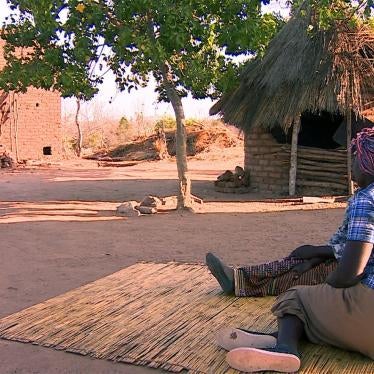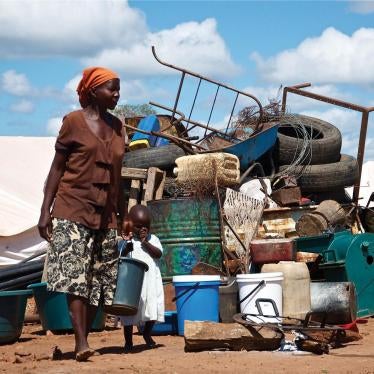Sometimes if you ignore a problem, it will go away. But ignoring open defecation and fecally-contaminated water isn’t a good idea. One reason for that is cholera.
Recent news that the government of Zimbabwe is on alert for a cholera outbreak can actually be seen as progress – the worst response by a government to cholera is denial. In December 2008, at the same time as the World Health Organization announced more than 16,000 cases in Zimbabwe, President Robert Mugabe said the country was “cholera free.” By the time cholera was under control, more than 100,000 people had been infected and 4,000 died.
In 2013, Human Rights Watch researched access to water and sanitation in Harare, Zimbabwe’s capital. We found corruption and mismanagement in the management of water and sanitation. Many people told us that they had been forced to drink water from shallow, unprotected wells contaminated with sewage. Some had no choice but to defecate outdoors – a perfect combination for a rapid and devastating spread of cholera. Nearly every person we spoke with during our research had no idea if their water was safe to drink.
Since our report, some improvements have been made to Harare’s water system. But as Harare City Health Director Dr. Prosper Chonzi said to IRIN news, “it only takes a bus for the disease to get into Harare.”
If that happens, rapid detection and treatment will be critical, as will be public education campaigns. More fundamentally, curtailing corruption and ensuring greater investment in universal access to water and sanitation remain crucial to preventing cholera from emerging, and from exploding, into another epidemic.






